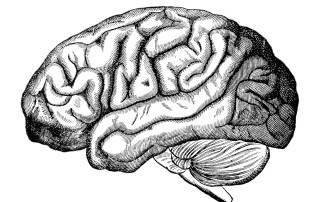One of the most frequently used lines of false consolation that I hear is “you can’t change the past”. Usually this bit of indispensable wisdom is offered as a word of advice when someone is describing the impact of some negative event from their history, something that they wish had never happened and often something that continues to affect them to this day. Of course, this advice and apparent statement of the obvious is rarely helpful, which is not surprising if we look at the gist of this rejoinder. Let’s say you run breathless to the neighbour’s house, pounding on the door. They open the door and ask what’s going on. You tell them that there’s been a terrible accident and you need them to call an ambulance because you think your brother is dead. I don’t think anyone would feel justified or even attempt to rationalize a response such as, “Well, it’s in the past. You can’t change the past. You just have to let it go and get over it.” We would expect that person to offer help, to repair whatever damage had been done, within reason and their capability. Of course we wouldn’t expect them to take […]
Validating Your Brain: The Epic Conclusion
Click here for part 1 and part 2 Up to this point, my last two posts have tried to demonstrate a few key realizations: The brain is working primarily on an unconscious level. Because of this, we are rarely as aware of what we are doing and why as we would like to believe. The brain is well-intentioned and is trying to accomplish its sole purpose, surviving the moment. Because it is focused on surviving the moment, it will make decisions that favour short-term benefits EVERY SINGLE TIME, unless we override it. Because the brain operates primarily on the level of our unconscious, it usually communicates with our conscious brain indirectly. Often, it is trying to get our attention and we are not listening to it, which leads to the perpetuation of problem behaviors, thoughts, and feelings. If we learn to really listen to our brain, it will tell us everything we need to know. The final piece of this trilogy will attempt to focus on the final point I’ve listed above. Specifically, I’m going to be demonstrating how working together with your brain, instead of fighting against it, is the surest way to mental health and a better experience […]
What Are You Looking At?
oo many times I hear people setting goals that revolve around avoiding something negative rather than approaching something positive. There is much to be said for the idea that the location of our focus determines that nature of our journey. Consider the following analogy. If you are running from a bear, the further you get from the bear, the less motivation you have to keep up your speed. When the bear is out of view, you may think that you have lost it and that you no longer need to run. You begin to walk and allow your body to rest. This leisurely pace gradually slows to a stop, as you sit and rest a while. You hear a crack in the bushes next to you and assume that it must be a deer or a squirrel. Then, you are horrified to see the bear emerge from the bushes, running full speed. You freeze. It is too late to begin running again. If you are running to your home, the closer you get to your home, the more motivation you have to maintain and even increase your speed. When your home is in view, or even around the corner, you […]






Recent Comments